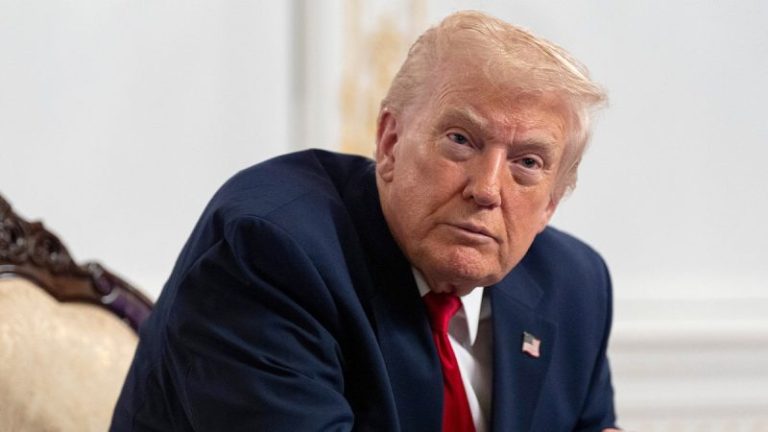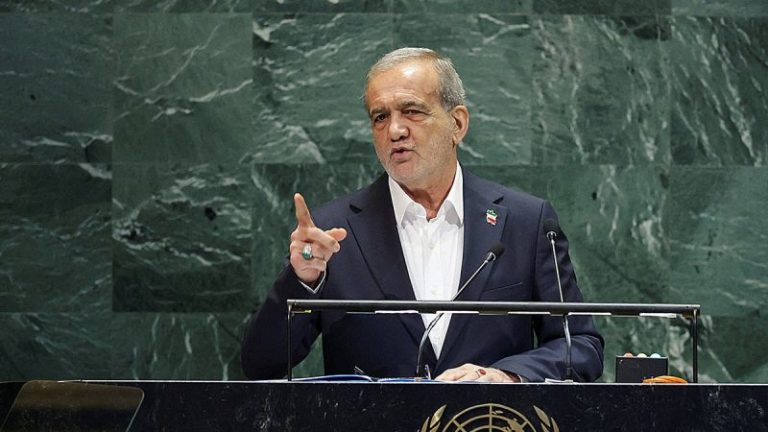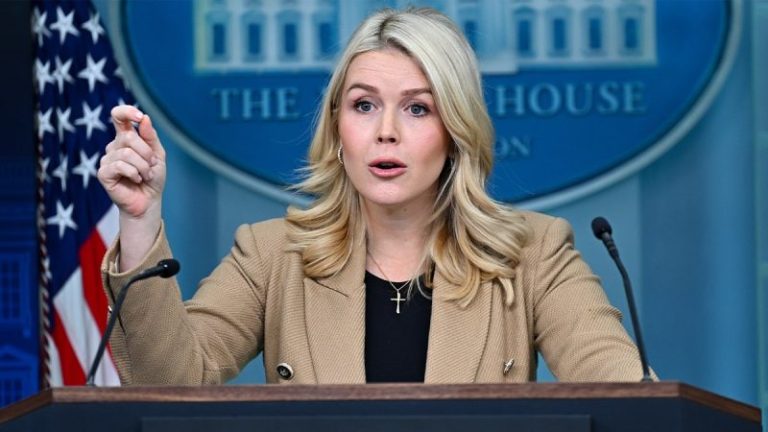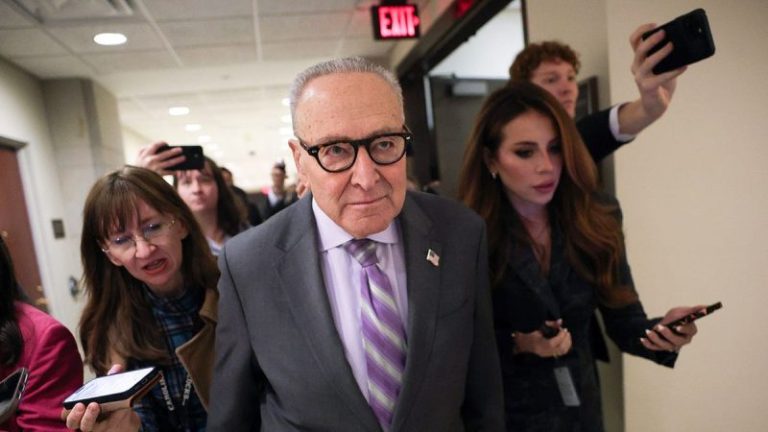President Donald Trump’s pick to serve as U.S. ambassador to the United Nations (U.N.) office focused on aviation is facing heightened scrutiny for hundreds of thousands of dollars in back taxes that were not disclosed in official ethics documents obtained by Fox News Digital.
Jeffrey Anderson, a retired Delta Air Lines captain and U.S. Navy veteran, was nominated to serve as the U.S. ambassador to the International Civil Aviation Organization in July 2025. The International Civil Aviation Organization is a U.N. office based in Canada that is charged with overseeing international aviation standards, including issues related to safety, navigation and environmental protection.
The administration has backed him as ‘highly qualified’ for the role and a ‘great choice to represent the President’s America First foreign policy agenda in the international aviation community,’ in a statement to Fox News Digital in 2025 as his tax issues and past support of Democrats came to light.
The role is a Senate-confirmed post, with Anderson’s nomination sitting before the Senate Foreign Relations Committee.
Now, Anderson has signed his ethics agreement and disclosure forms, but mentions of the now-paid off liens are not included, Fox News Digital found.
Fox News Digital obtained Anderson’s IRS Certificates of Release of Federal Tax Lien that show he and his wife had multiple federal tax liens stemming from tax years 2013–2019, with unpaid assessed balances totaling approximately $426,000. The liens were related to ‘small business/self employed’ taxes, according to the documents.
A federal tax lien is ‘the government’s legal claim against your property when you neglect or fail to pay a tax debt,’ according to the IRS.
The liens, filed in two Georgia counties, were not released until October 2025 after payment was fulfilled. One IRS Certificate of Release of Federal Tax Lien shows liens tied to the 2012–2018 tax years totaling $354,791.63 and later released on Oct. 15, 2025, according to the documents obtained by Fox Digital. A second release shows a lien tied to tax year 2019 totaling $71,313.11 and released Oct. 29, 2025.
Anderson’s Public Financial Disclosure Report, called OGE Form 278e, however, only lists a single mortgage in the liabilities section — not any disclosures of federal tax liens or IRS liability, according to the documents obtained by Fox News Digital. The OGE Form 278e does detail boilerplate and detailed information on Anderson’s assets, past employment and income.
The Office of Government Ethics’ guidance for OGE Form 278e instructs filers to report liabilities over $10,000 owed at any time during the reporting period.
Anderson signed the OGE Form on Aug. 14, 2025, according to the document obtained by Fox News Digital.
Anderson’s OGE Form 278e and a separate ethics document sent by Anderson to the State Department’s Office of the Legal Adviser were added to the Office of Government Ethics’ system tracking financial and ethics disclosures Sept. 21, 2025, Fox News Digital found.
Fox News Digital repeatedly reached out to the State Department, specifically inquiring why Anderson did not disclose the liens on the liabilities section of the OGE 278e, if he filed an amended financial disclosure to add any IRS liability or lien after the initial filing, and when the administration was first notified of the liens.
The ICAO ambassador operates under the authority of the secretary of state when confirmed.
‘We support the president’s nominee and look forward to having him confirmed,’ a State Department spokesperson told Fox Digital of Anderson Wednesday.
A review of other nominees listed on the OGE disclosure database shows individuals have amended their ethics disclosures amid the vetting process. Anderson’s file does not reflect any public amendments to his initial disclosures.
Public financial disclosure is a core piece of the nomination vetting process. Federal ethics rules and guidance generally require nominees to disclose major outstanding liabilities during the reporting period.
Nominees for Senate-confirmed ambassador posts typically are cleared through a multistep White House process that can include FBI background checks and federal ethics review of financial disclosures, with the State Department helping compile and process the nomination package before it is formally sent to the Senate.
‘Everyone has setbacks. That’s not the problem,’ a former Trump official told Fox Digital about the matter. ‘The problem is lying to Congress and misleading President Trump. Jeffrey Anderson stiffed the IRS for more than $426,000, carried federal tax liens for years, then tried to slip through Senate confirmation by hiding them on a sworn disclosure. Federal tax liens aren’t optional, and they don’t magically disappear.’
The former official added that most ‘Americans don’t just come up with half a million dollars to make a scandal vanish,’ while arguing ‘Anderson’s record of donating to anti-Trump politicians’ tees up a nomination that will collapse on itself.
ICAO ROLE HAS GONE UNFILLED FOR YEARS
Anderson’s nomination to serve in the office follows years of it sitting dormant of U.S. leadership. The role was last filled by former ambassador, famed pilot Chesley ‘Sully’ Sullenberger, who stepped down in 2022.
Sullenberger gained widespread applause in 2009, when the US Airways pilot landed Flight 1549 on the Hudson River after a bird strike disabled both engines and saved 155 people — an event known as the ‘Miracle on the Hudson.’
Anderson’s nomination has been dragging since July 2025, with it returned to the president on Jan. 3, 2026 under Senate Rule XXXI, a technical rule, and Trump resending Anderson’s nomination to the Senate days later.
Anderson’s nomination has received pushback from the Air Line Pilots Association, a union that represents nearly 80,000 pilots across the U.S. and Canada, arguing his ‘only’ qualification was supporting an effort to raise the mandatory pilot retirement age.
The union opposes increasing the mandatory retirement from 65 years of age to age 67, arguing it ‘would leave the United States as an outlier in the global aviation space and create chaos on pilot labor, and international and domestic flight operations,’ the group’s statement in July 2025 read.
International aviation rules prohibit airline pilots older than 65 from flying. Some global airline groups have called on the International Civil Aviation Organization to consider raising the international pilot retirement age to 67, citing staffing pressure and that retaining veteran pilots would only bolster airline safety.
Anderson also has had close financial ties to Democrats and other politicians frequently hostile toward Trump and his policies, Fox News Digital previously reported.
‘Jeffrey Anderson isn’t a Trump Republican at all; he’s a liberal sleeper who slipped through the cracks of PPO (Presidential Personnel Office),’ a former Trump official told Fox Digital of Anderson’s political donations and tax history in August 2025.
Anderson made a handful of small-dollar donations to Republican Nikki Haley during the 2024 campaign cycle, when the former U.S. ambassador to the U.N. ran against Trump, whom she slammed as ‘unhinged’ while on the campaign trail before dropping out of the race and endorsing Trump as the GOP nominee for president.
The former pilot also donated to the former Democratic opponent who tried to unseat then-Republican Georgia Rep. Marjorie Taylor Greene in the 2024 cycle, according to donation filings previously reported by Fox News Digital. Anderson’s political donations to Democrats stretch back years, including in 2017 when he donated to Democrats, such as former House candidate Dan Ward in Virginia and former Rep. Peter DeFazio of Oregon.
Texas Republican Rep. Troy Nehls, who serves as chairman of the House Transportation and Infrastructure Subcommittee on Aviation, told Fox Digital in August 2025 that Anderson will help usher in ‘the Golden Age of aviation’ if confirmed.
‘Mr. Anderson served as a naval aviator and has more than three decades of experience as a pilot for Delta,’ Nehls said in August. ‘He is, without a doubt, qualified to represent the United States of America at ICAO, where his first-hand experience with the aviation industry will play a crucial role in advancing President Trump’s mission of ushering in the Golden Age of aviation.’
‘I am fully supportive of President Trump and his America First agenda. I have been fully vetted by the White House and appreciate the approval of the President, House Aviation Chair Troy Nehls and House T&I Chair Sam Graves, among others. I look forward to advancing American interests as the next Permanent Representative to ICAO,’ Anderson wrote in a direct message on LinkedIn to Fox Digital in August 2025, while adding that Trump is seeking to ‘move effectively forward in a space negligently left vacant by Biden.’
Fox News Digital reached out to the White House for comment on the timeline of disclosure but did not receive a reply.
Fox New Digital reached out to Anderson for comment on the timeline of the tax liens and ethics filings but did not receive a reply.










